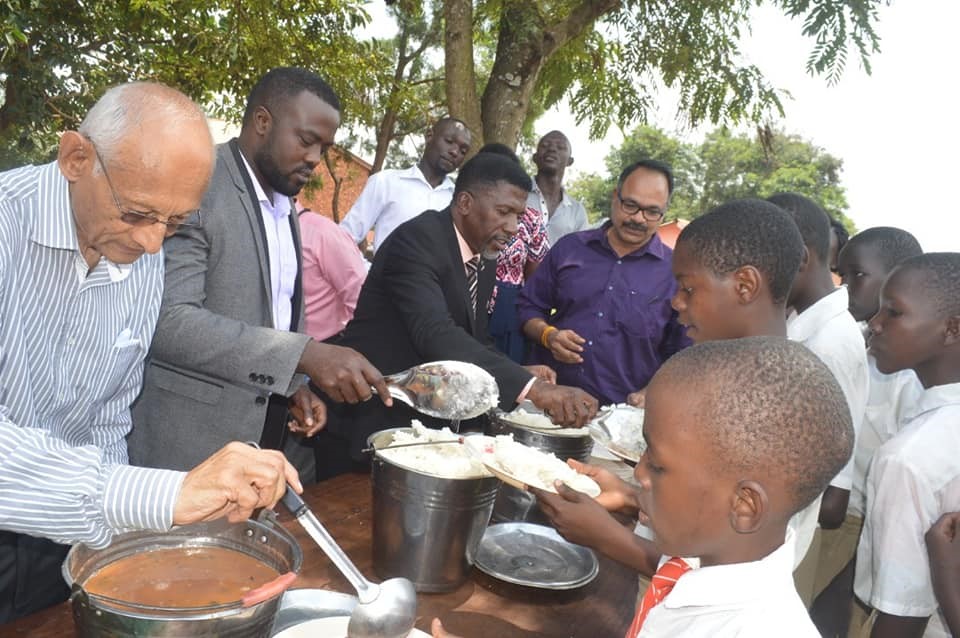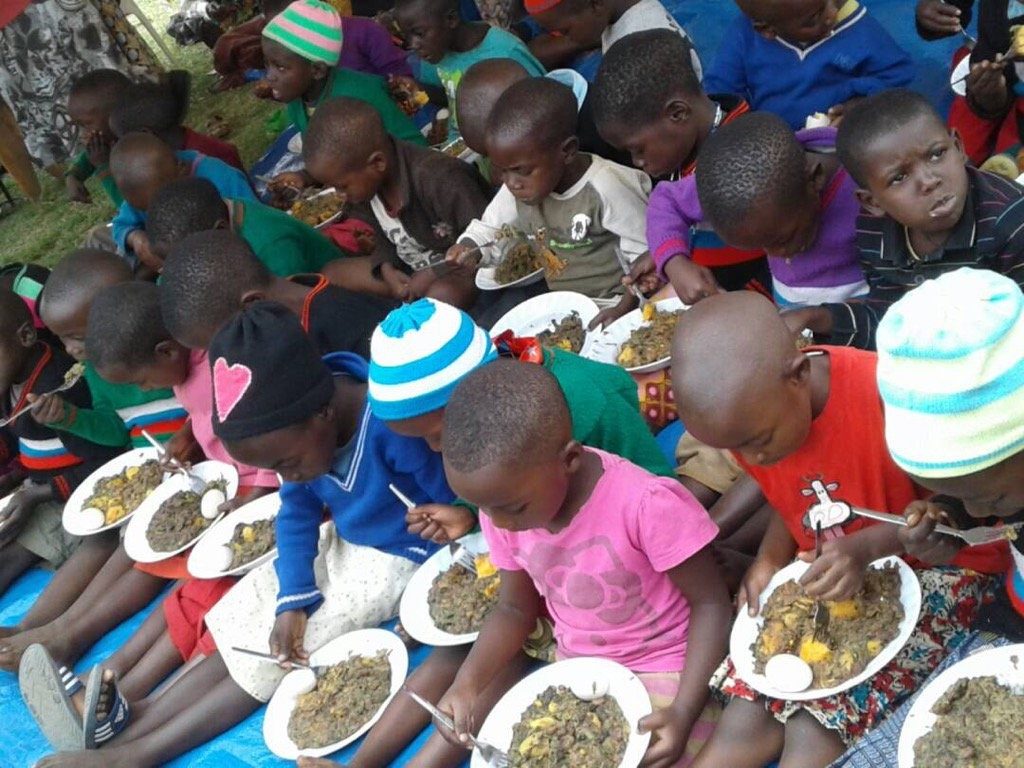by Patricia Onyango
A large proportion of school children in Sub-Saharan Africa suffer from malnutrition, adversely affecting their physical growth and cognitive ability to learn. Many school-age children in food-insecure areas remain out of school for extended periods of time, further negatively impacting their progress in education. The School Feeding programmes (SFP) is a targeted safety net tool that provides health and educational benefits to vulnerable children. Having food every day at school does not only mean better nutrition and health but also increased access to and achievement in education. It is a strong incentive for children to attend school.
To improve literacy and nutrition outcomes among school-going children in Africa, the Alliance of Bioversity and CIAT/ PABRA has stepped up it is efforts of promoting high iron and zinc beans through mainstreaming them in school feeding programmes. PABRA is using school feeding and nutrition programmes as an entry point for introducing innovations that enhance nutrition and incomes of farming communities in Tanzania, Kenya, Burundi, Zimbabwe, and Uganda.
Great progress in the number of schools growing and cooking beans as part of their diet has more than doubled from 133 to 341 schools in the last two years. All these schools are in the rural districts of the Lake Zone, Northern and Southern Zones of Tanzania. The PABRA school feeding initiative is a success because it is implemented using a multi-sectoral approach with partners ranging from local government, politicians, community farmer-based organizations, Tanzania Agriculture Research Institute (TARI), and local Non-governmental organizations (NGOs).
‘The enrolment in our school has improved significantly since the start of the feeding programme. Most of these children have been coming to school because of the food, and that is a great thing. I am glad the children are even happier to be in school.’ said one of the teachers championing the feeding program at a school in Moshi.
The success of Tanzania in mainstreaming biofortified beans in school menus is partly attributed to a government directive passed to promote high iron beans consumption in schools. District Commissioners have enforced this directive by ensuring that school gardens and community learning sites are set up to teach the community the nutritional value and management practices of high iron and zinc bean varieties. There is also an appeal by policymakers to have bean demonstrations plots at the district level to train farmers on bean production, consumption, and market opportunities. Tanzanian schools have developed and maintained school gardens and established linkages with community farmers growing high iron and zinc beans. The community farms and school gardens, supply nutritious beans that are incorporated into daily school meals. Parents, farmers, students, and teachers are all actively involved in the maintenance of school gardens and community farmer gardens and fields. In the process, the children and farming communities around the schools gain practical lessons on good agricultural practices (GAPs), which they can apply to enhance productivity. At the end of the season, field days are organized where a wide range of actors are invited including farmers, input suppliers (seed companies, agro-dealers), grain off-takers, local government authorities among others.
As a result, of these concerted efforts, there has been a significant increase in seed demand by schools during the last three years. For example, last year, schools in Moshi region received 400 kilograms of revolving seeds of high iron and zinc beans. Moshi farmers’ group donated these seeds to schools to plant and produce bean grains for consumption. The school combines maize with beans to prepare a traditional meal called “Makande.” The Makande meal is served to all students and teachers. Secondly in Mara region, demand rose from 0.4 tons to 11 tons, while rural schools in Moshi their demand for biofortified beans increased from 0.06 tons in 2018 to 4 tons.
To ensure that more school children beyond the intervention sites consume high iron and zinc beans, the district councils and PABRA local partners are facilitating the dissemination of seeds from the initial schools where the project intervened in other schools. These initiatives are spurring the demand for seed from neighboring non-intervention schools and surrounding farming communities; providing business opportunities to farmers and traders including seed companies and local agro-dealers. The school feeding programmes have created ripples in the wider business ecosystem by catalyzing private sector investments in the provision of inputs (seed, fertilizer, etc.) and in the marketing of good quality grain.


